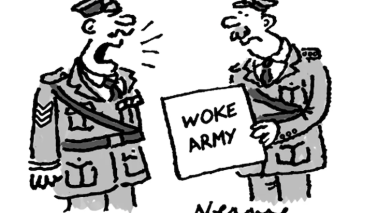Although Janet Malcolm has written in depth about an extraordinary range of subjects, from psychoanalysis and photography through to literary criticism, the art world, journalism, biography and the law, in thematic terms she has actually been one of the most consistent non-fiction writers of our time. Certainly, she is one of the most brilliant. I never feel such a keen sense of anticipation – the kind of adrenalised mental anticipation that feels almost luxurious to indulge – as when I start out on a new piece of writing by Malcolm.
For some, her thematic doggedness has been a problem: launching into a book about Sylvia Path and Ted Hughes (The Silent Woman), Plath groupies and gossip-mongers have been disappointed to find themselves reading what amounts to a reflection on the nature of biography, or, even more broadly, on having one’s story told by others, rather than something passing itself off as the last word on its subject.
Similarly, some readers have been miffed to begin a book with the promising title The Journalist and the Murderer only to find themselves embroiled in a meditation on the relationship between journalists and their subjects (the word ‘meditation’, admittedly, feels false, since the effect of this book, Malcolm’s masterpiece, is electrifying).
Malcolm is a thorough and resourceful journalist, so the results of her enquiries always feel grounded in observation; they are never pointlessly abstract. Her willingness to crack open hard-set clichZs, and her merciless dissection of motives, make her work consistently surprising.
All Malcolm’s books have wrestled with the capacity for self-sabotage, or at least, unwitting self-revelation, that inheres in the stories we tell – not only to journalists, but to analysts, to mentors, to courts of law, and even pictorially, via the camera. They are close, unforgiving studies of what happens when we shape and edit reality -as we all do, all the time, even just by looking around us. The truth, Malcolm wrote in her last book, The Crime of Sheila McGeough, is ‘messy, incoherent, aimless, boring, absurd. The truth does not make a good story. That’s why we have art.’
Which leads us to the subject of Malcolm’s latest book – one of her artistic heroes, Anton Chekhov. Although it is neither a biography nor a piece of conventional literary criticism, Reading Chekhov must surely rate as one of the best things ever written on its subject. Malcolm weaves insights stemming from Chekhov’s stories and life around journalistic observations of her own made during a recent research trip to Russia. Her Russian guides and translators come in for special treatment, providing some comic relief amid a generous spread of marvellously subtle observations about Chekhov’s fiction.
Chekhov has always been considered a realist. But Malcolm demonstrates that his ‘realism’ involved unusually radical simplifications of truth’s native unruliness – even to the point of reducing the structure of his stories to the level of Biblical parable (in which Chekhov, although an atheist, was extremely well-versed).
The best fiction writers today tend to believe they are uniquely qualified to provide the kind of penetrating, almost omniscient insight into pyschology and motive that the cant and self-exposure of our media culture do so much to obscure. But is deep psychological penetration always the hallmark of great fiction?The reality of characters in fiction – and of their cousins in journalism – derives precisely from the bold, almost childlike strokes with which they are drawn. Tolstoy … confines [Anna Karenina’s] thoughts and actions to a range of possibility that no person in life is confined by. Chekhov’s realism … is of a different order; his economy is even more stringent, his strokes even blunter.
‘It does not occur to us,’ writes Malcolm
This is wonderfully observed. Again, it comes down to how we ‘edit’ ourselves and each other. How writers edit their characters is not so different from how lovers ‘edit’ their loved ones, or lawyers ‘edit’ their clients. In each case, it is only the motives that are different.that the privacy rights we are so nervously anxious to safeguard for ourselves should be extended to fictional characters. But, interestingly, it does occur to Chekhov. If he cannot draw the mantle of reticence over his characters that he draws over himself – and still call himself a fiction writer – he can stop short of fully exercising his fiction writer’s privilege of omniscience. He can hold back, he can leave his characters a little blurred, their motives a little mysterious.




Comments